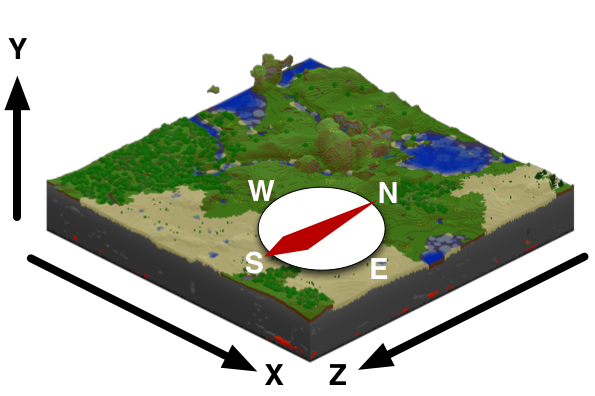SpiseMisu.Minecraft
Background
How do we make code fun and more intuitive?
This year I became a volunteer at Coding Pirates, a Danish non-profit organization that tries to help kids to understand technology so they can create and not just consume.
There are a few challenges that you are going to meet when you try to teach kids to code. Mostly mathematical/logical concepts but also language based (English keywords).
Scratch, developed by MIT, seems to solve these issues but tends to
become boring in the long run. I use to say that coding in Scratch is a bit
like reading a "picture book".
We seem to face a challenge when we want to transition the children from reading "picture books" to "read books", as many of the technologies used by us grown ups, aren't that user-friendly as we think they are.
Outcome
Therefore, I wanted to create something that was easy-to-use, but mainly safe
in the sense that it's very difficult to write some erroneous code, just like
Scratch:
#load "../SpiseMisu.Minecraft.fs"
open SpiseMisu
open SpiseMisu.MineCraft
module Safe =
...
let story = minecraft {
add frame
add ceil
add windows
}
let stories =
fun n ->
fun _ -> story
|> List.init n
|> List.collect id (* flatten the list of lists *)
let skyscraper = minecraft {
(* origo facing +X (East) *)
teleport
Global 0 Global 4 Global 0
East Horizon
(* foundation *)
fill
Relative 50 Global 3 Relative 0
Relative 0 Global 3 Relative 50
Concrete LightGray
(* stories *)
add (stories 5)
}Talk (Slides + Video)
I gave a talk on the subject at Øredev 2017:
Usage
You can clone the project or just download the raw version of
SpiseMisu.Minecraft.fs file from this project. Ideally you should set up a
dependency to this file, usually with a tool like paket:
Examples
Please visit the examples folder in order to view a few scripts that uses this
library in order to get some information from a Minecraft server as well as
some that builds a skyscraper and colors it.
Limitations
As it is right now, I have just added the tp (teleport) and the fill
Minecraft commands to the easy-to-write DSL. It should be possible though to
expand the DSL with all the other Minecraft commands without breaking
backward compatibility, as the DSL would just need to add new
CustomOperations, only additive changes, and therefore complying with
syntactic versioning.
Also, it's not possible to access any Minecraft server as I have only
implemented login without authentication, see source function:
loginUnauthenticated. Therefore, this client will only connect to servers that
aren't running in online-mode (online-mode=false in server.properties).
Also in order to execute Minecraft commands, the users must be OP on the
server. That's very unlikely to be the default setting for online-mode
servers.
But at some point, I will give authentication a try with an implementation by using something like: The Legion of the Bouncy Castle.
Note: Also, compression is not implemented as well. Therefore, it must be disabled (
network-compression-threshold=-1inserver.properties) as well.
Future work
I leave the road-map open as my only intention was to showcase how easy it is to implement low-level protocols and abstract it to an easy to understand interface while still being able to make something useful.
I'm hoping though, that some of the older kids from Coding Pirates, might
expand it with some cool stuff, instead of just using it as it is. Our motto:
understand technology to create and not just consume.
But, as a guy who spends must of his time in a terminal, I'm not going to
exclude implementing a fully functional Minecraft client that could be
executed from a head-less server.
Licensing
In order to ensure that the rights of the end-users are preserved as thought initially by this project, we have come to the conclusion that correct and only form of licensing that support this, is copyleft. Therefore source code and media content are released under GPL-3.0 and CC BY-SA, respectively:
